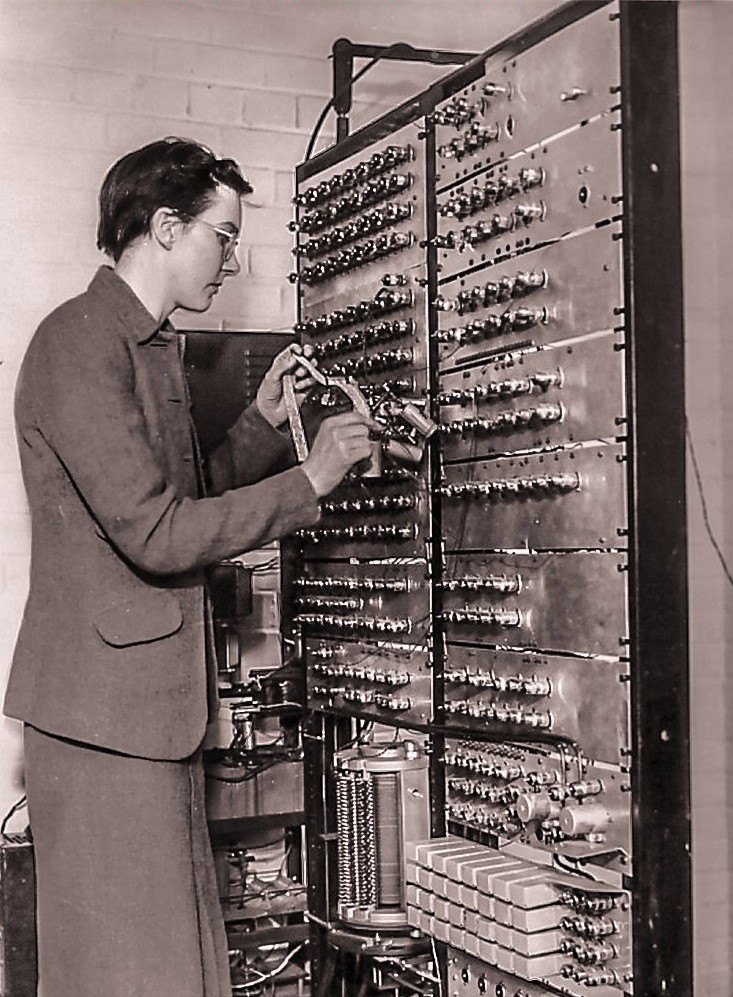| Title: |
Kathleen Booth – UK Computer Pioneer |
| Speaker: | Roger Johnson |
| Date: | Thursday 20th April 2023 |
| Time: | 14:30 |
| Location: |
25 Copthall Ave, London EC2R 7BP and |

About the seminar
The death late last year of Kathleen Booth, shortly after her 100th birthday, has broken one of the last links with the very earliest days of computing in the UK. Kathleen Booth (then Britten) was recruited as a research assistant at Birkbeck College, London University in 1946 working with Andrew Booth whom she was to marry in 1950.
Andrew Booth was constructing a simple electro-mechanical relay calculator. This small team built a series of small electronic computers at Birkbeck. Although simple in design, the circuits formed the basis for the BTM HEC 4/ICT 1200 data processing computers of which over 100 were sold worldwide.
The lack of publications in her name has led to the assumption that she played only a minor role supporting her husband. However it is clear from his writings as well as hers that she built substantial pieces of hardware and did much of the testing.
She shared with Andrew an interest in novel applications for computers most notably natural language translation. Kathleen also had a long term interest in applications of neural nets.
This talk will review the work of the team at Birkbeck and subsequently in Canada and attempt to distil out her special contribution to their achievements.
About the speaker
Roger Johnson obtained a PhD in Computer Science at Birkbeck College, London in 1974. After four years with CAP he returned to academia. He returned in 1983 to the Computer Science department at Birkbeck College. He served as Faculty Dean for 23 years retiring in 2010 when he was awarded an honorary College Fellowship. He wrote a history of Birkbeck’s Computer Science department to mark its 50th anniversary in 2007.
He is a Past President of the British Computer Society, Past President of the Council of European Professional Informatics Societies (CEPIS) and served as Honorary Secretary of the International Federation for Information Processing (IFIP) for 10 years. He has served on the Computer Conservation Society committee since its founding in 1989.